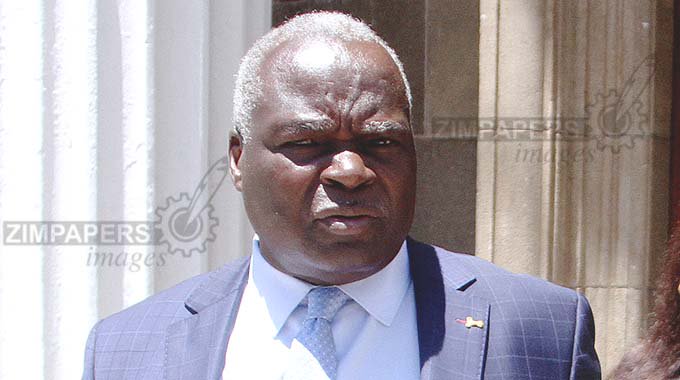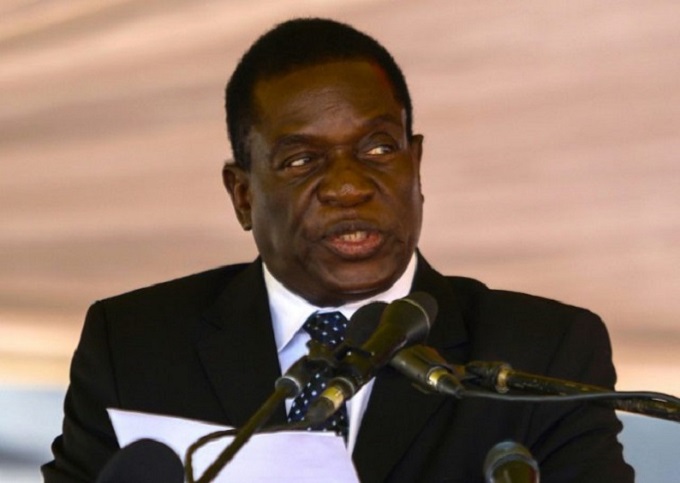Government explains devolution

Nduduzo Tshuma, Political Editor
THE Government is set to introduce a raft of measures that will see the State funding budgets for respective provinces and identifying previously marginalised areas that need special attention as it moves to implement devolution.
Devolution is captured in two chapters of the constitution namely Chapter 2 which deals with the political arrangements and Chapter 14 which deals with the financial provisions.
Speaking ahead of the July 30 harmonised elections that the ruling Zanu-PF won resoundingly, President Emmerson Mnangagwa said after the polls, the Second Republic would implement devolution as part of the constitutional provisions.
In an interview in Bulawayo on Friday, the Minister of Local Government, Public Works and National Housing, Cde July Moyo, said on the political side, people had already been elected for positions in provincial councils and what was left was to amend the old Provincial Councils and Administration Act.
He said the amendment would then bring into effect the council, its membership and their duties.
“It is there where we will spell out how the political mechanisms of devolution will be fleshed out and I cannot be specific now as I have to pilot this through Cabinet and then to Parliament,” said Cde Moyo.
He said the Government would also address three critical financial issues to kick start devolution.
“The first one is the capital budgets that must be given to all Provincial Councils as well as the 92 local authorities so that we can look after your roads, sewerage and water and Central Government has to assist in this endeavour.
“The second aspect is we are looking at marginalised areas and by marginalisation we think that where services have lagged behind whether those services are schools or clinics or those services are electricity or sewerage, again the Government is called upon in the Constitution to make sure that monies are voted for by Parliament through Government, through the Ministry of Finance so that we can uplift the standards of living of our people,” said Cde Moyo.
“The third aspect of the financial provisions requires that Central Government every year puts aside five percent in the national budget so that it can be distributed to Provincial Councils and local authorities so that we can again assist the whole of Zimbabwe to be uplifted. In the broad sense, that’s how we are going to implement devolution.”
Cde Moyo said in line with President Mnangagwa’s calls for the growth of respective areas’ Gross Domestic Products (GDP), all economic ministries must come up with assets that can contribute to the GDP of those areas.
“So the first time we are saying let’s disaggregate our GDP. Let’s not just look at Zimbabwe’s GDP. Let’s not just look at Zimbabwe’s gross per capita income. Let’s look at per capita income of very one of those 92 local authorities and if we do that we will be able to show that this one is lagging behind and this one is doing okay.
“Through devolution we can then concentrate our resources and our political muscles to uplift that area, so the President is already calling for that GDP,” said Cde Moyo.
“That means we also have to rearrange the whole of Central Government machinery where Zimra was not telling us what income was coming out of Bulawayo, in order to come up with a GDP, now it is forced to do so.
“(It should be clear) where mining is not telling us what came out of Umguza, for instance, how much it is contributing to the GDP of the country and what it is also doing for the communities in Umguza. So when we start to know how much gold is contributed from Umguza or Bubi, we start to say how much of that money is going to the community in Bubi or Umguza. So that in a nutshell is devolution.”
Cde Moyo dispelled reports of a conflict of operation between Provincial Councils and Provincial Ministers of State.
“The Provincial Minister is a minister appointed by the President in terms of the constitution in terms of what mandate they are given. They are part of the executive of the National Government.
“They are de-concentrated to the provinces through the decentralisation principle so that at least there is Government near the people. So that is the minister.
“He is an executive of Central Government. He is appointed in the same manner as a minister who is running a ministry. He is appointed in the same manner as a Minister of State in the Office of Vice President (Kembo) Mohadi’s office or (Constantino) Chiwenga’s. He is appointed in the same manner deputy ministers are appointed,” said Cde Moyo.
“The President is given powers to appoint his executive and that’s what he has done. The provincial council becomes the Parliament of that area in our view. It has powers to legislate certain aspects that are particular to that area and the constitution also allows them in some cases to look after tourism, planning and co-ordination.
“But that co-ordination requires that they look at Bulawayo as a unique place but if you are in Matabeleland North you have local authorities such as Victoria Falls, Lupane, Nkayi, Umguza, Binga, Bubi and Hwange. Those need to be co-ordinated by these provincial councils because there are certain services that are going to cut across the boundaries of these authorities so co-ordination and planning is necessary and that is what the provincial councils are called upon to do.”










Comments